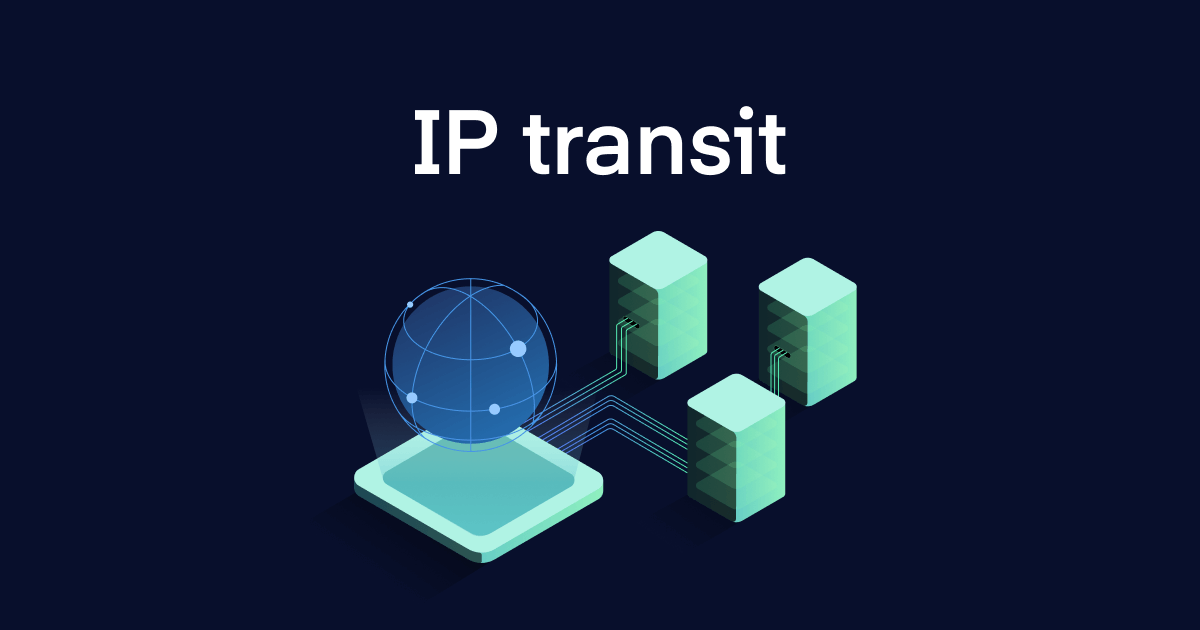All businesses rely on IP Transit to gain access to the world of technology. IP Transit is the backbone for modern communication networks. It powers everything from cloud services to eCommerce platforms. In this article, we’ll explore the fundamentals of IP transit, the role of IP transit providers, the range of services they offer and how companies can manage IP cost and transit pricing.

IP transit is also referred to as internet transit. It allows traffic from networks (also known as “traffic”) to cross or “transit” across networks. Users are then able to connect to the wider internet. IP transit providers are organizations that have the infrastructure to transfer data packets across networks. These providers are crucial in making sure that internet connectivity is reliable and efficient for both companies and users.
When it comes to IP transit services, businesses have a range of options to choose from. Some providers provide basic services to connect to the internet without any customizations or other features. Others offer more advanced services like managed IP Transit, which offers monitoring, extra support and security features. The type of service you pick is based on the requirements and demands of your company.
One of the most important considerations for businesses when selecting one of the most important aspects to consider when choosing an IP transit service provider is the cost. Pricing for IP transit may be affected by factors like bandwidth requirements, geographic location as well as service-level agreements. It is essential for businesses to be aware of the various pricing models and cost structures that providers offer in order to make educated choices and reap the maximum value from their investment.
Alongside pricing companies should also take into consideration the quality and reliability of the IP transit service provider. Carrier grade networks that have backbone connectivity at 100G and 400G are able to provide the reliability in scalability, reliability and capacity for mission-critical services and applications. End-to-end automation further enhances efficiency and provides an unbeatable user experience.
IP-Access offers a customizable and flexible solution for companies that are seeking to simplify their networking connectivity. This connectivity solution is ideal for companies with older installations or specific requirements. With features like IPv4/31 as well as IPv6/127 transfer networks as defaults, companies can tailor their connectivity to meet their particular requirements without the hassle of BGP sessions.
In terms of internet access, IP-Access comes with the essential DDoS protection against volumetric attacks, providing an additional layer of security for companies and their networks. This protects against the possibility of losing revenue due to cyber threats.
Inter.link Portal is a simple and convenient way for businesses regardless of size to use IP Transit services. Businesses can set up IP Transit in just minutes by making a couple of clicks. You can select your preferred locations, bandwidth needs as well as the speed of port connections and contract length. This streamlined process saves time and resources and lets businesses focus on their core operations.
IP transit is an essential component of the modern internet that allows businesses to connect and communicate with people across the globe. If you know the basics of IP transit, the function of IP transit providers, the array of services they offer and how to deal with prices and costs, companies can make informed choices and ensure that they have the connectivity they need to prosper in the current digital landscape. IP Transit is at the core of modern communication networks, whether it’s for accessing cloud-based services, powering platforms like ecommerce, or connecting offices across the world.